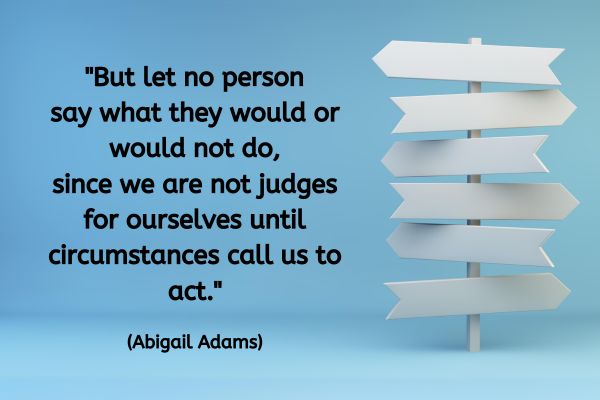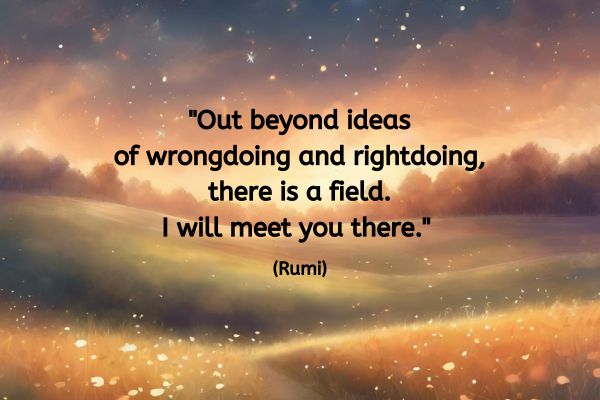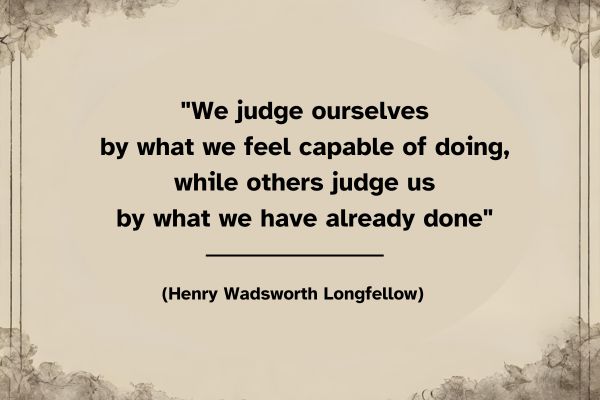A Shift in Perspective: Understanding Abigail Adams’ Wisdom

Today’s quote is:
“But let no person say what they would or would not do, since we are not judges for ourselves until circumstances call us to act.” (Abigail Adams)
In this quote, Abigail Adams challenges the notion of preconceived judgments and underscores the importance of context in determining our actions. She reminds us that it is only when faced with real-life circumstances that we truly understand the depths of our convictions and the choices we make. Let’s delve deeper into this thought-provoking quote and explore its relevance in our lives today.
Adams’ words resonate with the uncertainty and unpredictability of life. Often, we find ourselves forming opinions and making declarations about what we would or would not do in certain situations. However, such assertions are based on speculation rather than lived experience. We may believe we know ourselves well, but it is only when confronted with the complexities of real-life scenarios that our true character is tested.
Consider, for example, a hypothetical scenario where someone proclaims they would never compromise their values for personal gain. While this declaration may seem noble in theory, it is only when faced with a moral dilemma in the heat of the moment that one’s true convictions are put to the test. Circumstances have a remarkable way of challenging our beliefs and forcing us to confront our innermost values.
Judgement
Moreover, Adams’ insight highlights the fallibility of human judgment. We are often quick to judge others based on their actions without considering the context in which those actions occurred. However, as Adams suggests, we cannot fully understand another person’s choices until we have walked in their shoes. What may seem like a clear-cut decision from the outside may be far more complex when viewed from the individual’s perspective.
Furthermore, Adams’ words urge us to embrace humility in our interactions with others. Instead of passing judgment or making assumptions about someone else’s behavior, we should strive to cultivate empathy and understanding. Recognizing that we are not the ultimate arbiters of truth allows us to approach situations with an open mind and a willingness to learn from different perspectives.
In today’s world, where social media and instant communication often fuel snap judgments and knee-jerk reactions, Adams’ wisdom serves as a timely reminder to pause and reflect before rushing to conclusions. Rather than jumping to conclusions based on incomplete information, we should strive to withhold judgment until we have all the facts.
Perspective
What this quote also points towards is that our experiences of our cirmcumstances is directly a result of our thinking in that moment. So if you are in a low mood with lots of rubbish thinking you could react differently to the same minor inconvienience then if you had been in a great mood with not a lot on your mind.
I have found that if you have an understanding about that’s just how we work as humans that it’s much easier not to make knee jerk reactions because of low moods. I tend to be more aware that with that thinking going on that its not a great time to make life changing decisions or say something that will make situations worse.
An awareness and trust in the existance in our own innate wisdom also means that it is often easier to notice and listen to any guidance that shows up in the moment – you may think of that as intuition or a gut feeling. It’s something that operates in the now, rather than when we project our thinking into the future to try and predict what we would do. Which means that in any moment we have the possibility of something occuring to you in that moment that would never have occured to you before.
In conclusion, Abigail Adams’ quote serves as a powerful reminder of the importance of humility, empathy, and open-mindedness in our interactions with others. By recognizing the limitations of our own judgment and embracing the complexities of human experience, we can cultivate a deeper understanding of ourselves and the world around us. Ultimately, it is only through the crucible of real-life circumstances that our true character is revealed, and our capacity for empathy and compassion is tested.
About Jen Waller

Jen Waller is on a mission to support, nurture and encourage coaching skills and talents from non-coach to coach and beyond.
As an experienced coach and trainer Jen is happy to utilise all skills at her disposal to assist clients from getting out of their own way and making a difference in the world with their coaching. Find out more about the support Jen offers here.


